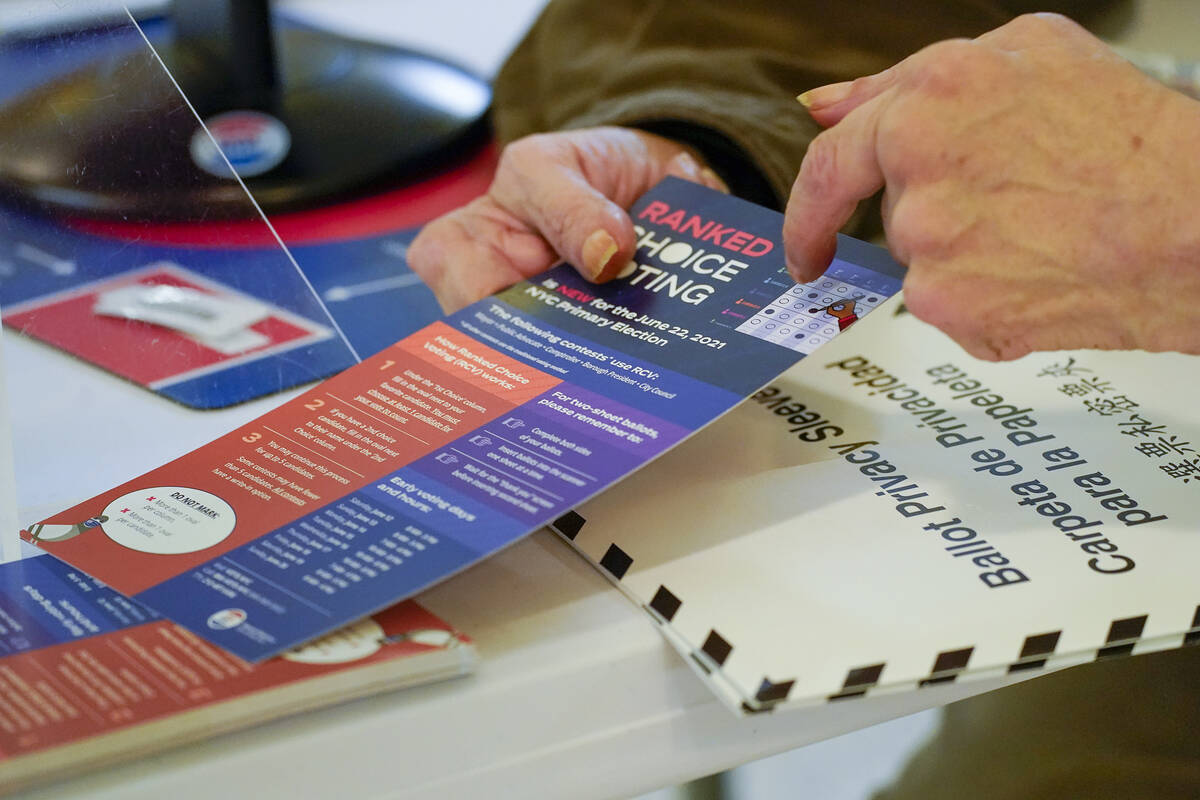EDITORIAL: Nevada can do without ranked-choice voting
Nevada voters approved Question 3 in 2022 by a narrow 53-47 margin. If the proposal passes again in November, it will enshrine in the state constitution one of the more radical electoral reforms in the state’s history.
This ballot measure wraps a significant change in the way Nevada conducts elections inside the sugar pill of open primaries, which tend to be popular with the electorate. But in addition to allowing independent voters to participate in the selection of candidates offered by the two major political parties, the initiative would force Nevadans to become guinea pigs in the electoral experiment known as “ranked-choice” voting.
As we noted in 2022, if you’re a fan of confusion and delays, Question 3 is right up your alley.
Under this version of a ranked-choice system, the top five vote-getters in an open primary for congressional, state constitutional and legislative offices — regardless of party — advance to the general election. Voters would then be tasked with ranking their preferred candidates from one to five. If no candidate received 50 percent support, the candidate with the lowest vote total would be eliminated. Voters who selected that participant as their No. 1 choice would have their ballots recalibrated based on their rankings of the remaining four hopefuls. The process is repeated until someone claims a majority of the votes.
Supporters of this approach argue it would tamp down extremism by encouraging candidates to moderate in search of a broader base of support. But only two states — Alaska and Maine — currently use ranked-choice voting, along with a handful of municipalities. There is little evidence that the reform has led to an outbreak of electoral decorum in those jurisdictions.
Instead, it has made participating in the process more difficult for many voters and hampered the process of determining election results in a timely manner. And rest assured that such an intricate method for reaching democratic outcomes will increase the chances of manipulation by the parties themselves and other special interests.
Under ranked-choice voting, it’s possible that the eventual winner won’t have majority support. It is also a certainty that some voters will have their ballots “exhausted” because they rank only two or three candidates, nullifying their own ballots.
Making it easier to vote, coupled with reasonable election security measures to ensure the integrity of elections, should be the goal of any healthy democracy. Ranked-choice instead makes the system more complicated for voters to navigate while providing precious little in return. Nevadans should reject Question 3 this time around.






















